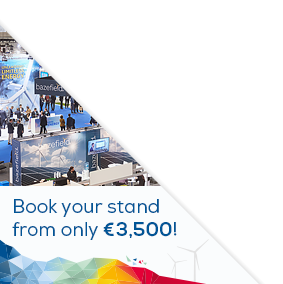Posters
Siblings:
ProceedingsProgrammeProceedingsSpeakersPostersContent PartnersElectrification StageMarkets TheatreR&I ActivitiesStudent DayProgramme Committee & abstracts reviewersPresenters dashboardCome meet the poster presenters to ask them questions and discuss their work
We would like to invite you to come and see the posters at our upcoming conference. The posters will showcase a diverse range of research topics and provide an opportunity for delegates to engage with the authors and learn more about their work. Whether you are a seasoned researcher or simply curious about the latest developments in your field, we believe that the posters will offer something of interest to everyone. So please, join us at the conference and take advantage of this opportunity to learn and engage with your peers in the academic community. We look forward to seeing you there!

PO008: Adaptive learning: the future of digital training
Lotte Kragh Andersen, Key Account Manager for Digital Solutions, RelyOn Nutec
Abstract
The current skill shortage coupled with the ambitious acceleration of investments in the Wind Energy sector puts pressure on training and capabilities of the current and upcoming workforce. We present a novel approach to digital learning, applied to the GWO Basic Safety Training. We use a blended approach facilitated by cutting edge adaptive learning technology. The online part of the course uses well proven algorithms and technology to personalize the content delivery in real time in order to keep each learner on the optimal learning path and highlight gaps in knowledge and self-assessment at a granular level, also via advanced learning data analytics. The understanding of the content is strengthened through spaced repetitions and personalized refresher assignments leading not just to mastery but also automaticity with an overall ambition to facilitate further reduction of serious incidents and reduce risk of errors across the energy sector protecting people, assets and the environment. This approach ensures 1) that potential knowledge gaps are identified and immediately rectified before starting work and 2) and that content can be revisited on a regular basis to ensure a higher degree of retention and provide insights into the deterioration of the learning material over time on a personal level.







